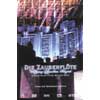Mozart (Die) Zauberflöte
Miller’s Masonic concept and a middling cast prove decidedly less than magical
View record and artist detailsRecord and Artist Details
Composer or Director: Wolfgang Amadeus Mozart
Genre:
DVD
Label: TDK
Magazine Review Date: 13/2002
Media Format: Digital Versatile Disc
Media Runtime: 151
Mastering:
Stereo
Catalogue Number: DV-OPMF

Tracks:
| Composition | Artist Credit |
|---|---|
| (Die) Zauberflöte, '(The) Magic Flute' |
Wolfgang Amadeus Mozart, Composer
Anton Scharinger, Papageno, Baritone Elena Mosuc, Queen of Night, Soprano Franz Welser-Möst, Conductor Guido Götzen, Second Armed Man, Bass Irène Friedli, Second Lady, Soprano Jacob Will, Speaker, Bass Julia Neumann, Papagena, Soprano Kenneth Roberson, First Armed Man, Tenor Malin Hartelius, Pamina, Soprano Martina Janková, First Lady, Soprano Matti Salminen, Sarastro, Bass Peter Keller, Priest, Tenor Piotr Beczala, Tamino, Tenor Ursula Ferri, Third Lady, Mezzo soprano Volker Vogel, Monostatos, Tenor Wolfgang Amadeus Mozart, Composer Zurich Opera House Chorus Zurich Opera House Orchestra |
Author:
This Zurich staging of 2000 (why is this theatre so much favoured on DVD?) is a facsimile of Jonathan Miller’s Age of Enlightenment production for ENO some years ago. We are in a Masonic library where the good and the wise study in serenity. One of their number falls asleep while reading and has a dream in which the opera’s action takes place with him participating as Tamino. The concept has some validity in relating Schikaneder’s libretto to its own period‚ but – at Zurich at any rate – much is lost in terms of the comedy and imagination of the original.
Philip Prowse’s heavy scenery depicting the library and Sarastro’s temple inhibits Papageno’s part in the proceedings and negates many of the work’s fairytale elements. For instance‚ the creatures conjured up by Tamino’s flute are anonymous and uncharming‚ while the vision of fire and water in the trial is entirely absent. In general‚ the action is too stiff and confined. Then the dialogue has been shortened and altered to ill effect.
WelserMöst seconds Miller’s ideas with a rather serious‚ almost too prompt account of the score that debilitates Mozart’s inspiration. He leads a good but not outstanding cast‚ Malin Hartelius’s appealing‚ fullthroated Pamina its strongest element – her cry of ‘Die Wahrweit!’ is truly affirmative.
Piotr Beczala‚ a tenor new to me‚ sings with strong tone and a mastery of Mozartian style‚ but he is a stiff‚ uncommunicative actor. Anton Scharinger is a wellroutined Papageno‚ with a confident delivery and a dream of a Viennese accent‚ but his portrayal has become selfconscious to a fault: he should never have been allowed to sing the third verse of his Act 2 aria as if he were inebriated. Elena Mosuc is a rather edgy Queen of Night. At the other end of the vocal scale‚ Matti Salminen remains an authoritative‚ sympathetic Sarastro. The rest are only soso.
Sound and video direction are average. As ever with TDK‚ the booklet is entirely inadequate‚ without a word about the production or the singers to enlighten potential buyers. All in all this version offers no competition to the wonderfully simple and highly imaginative Ludwigsburg production‚ finely conducted by Gönnenwein with a superior cast to Zurich’s.
Discover the world's largest classical music catalogue with Presto Music.

Gramophone Digital Club
- Digital Edition
- Digital Archive
- Reviews Database
- Full website access
From £8.75 / month
Subscribe
Gramophone Full Club
- Print Edition
- Digital Edition
- Digital Archive
- Reviews Database
- Full website access
From £11.00 / month
Subscribe
If you are a library, university or other organisation that would be interested in an institutional subscription to Gramophone please click here for further information.




